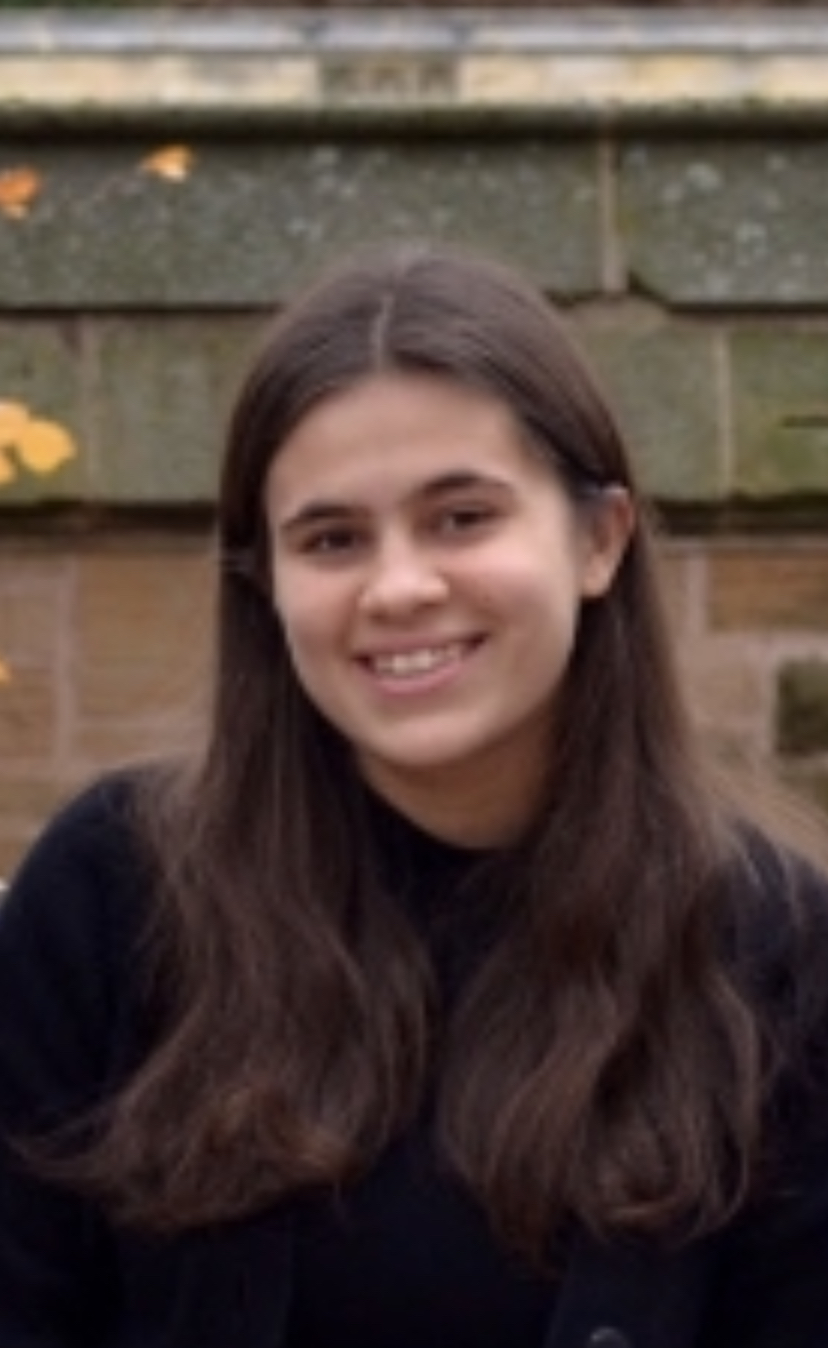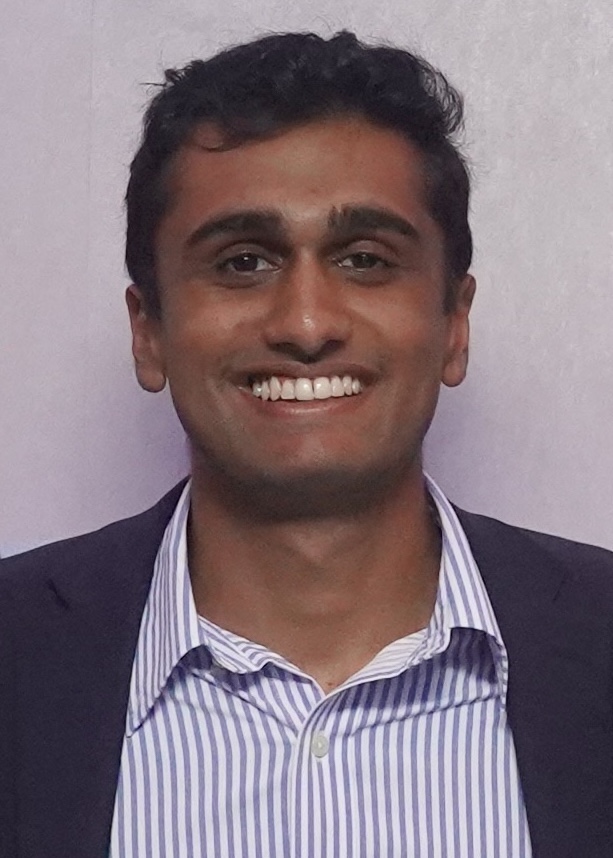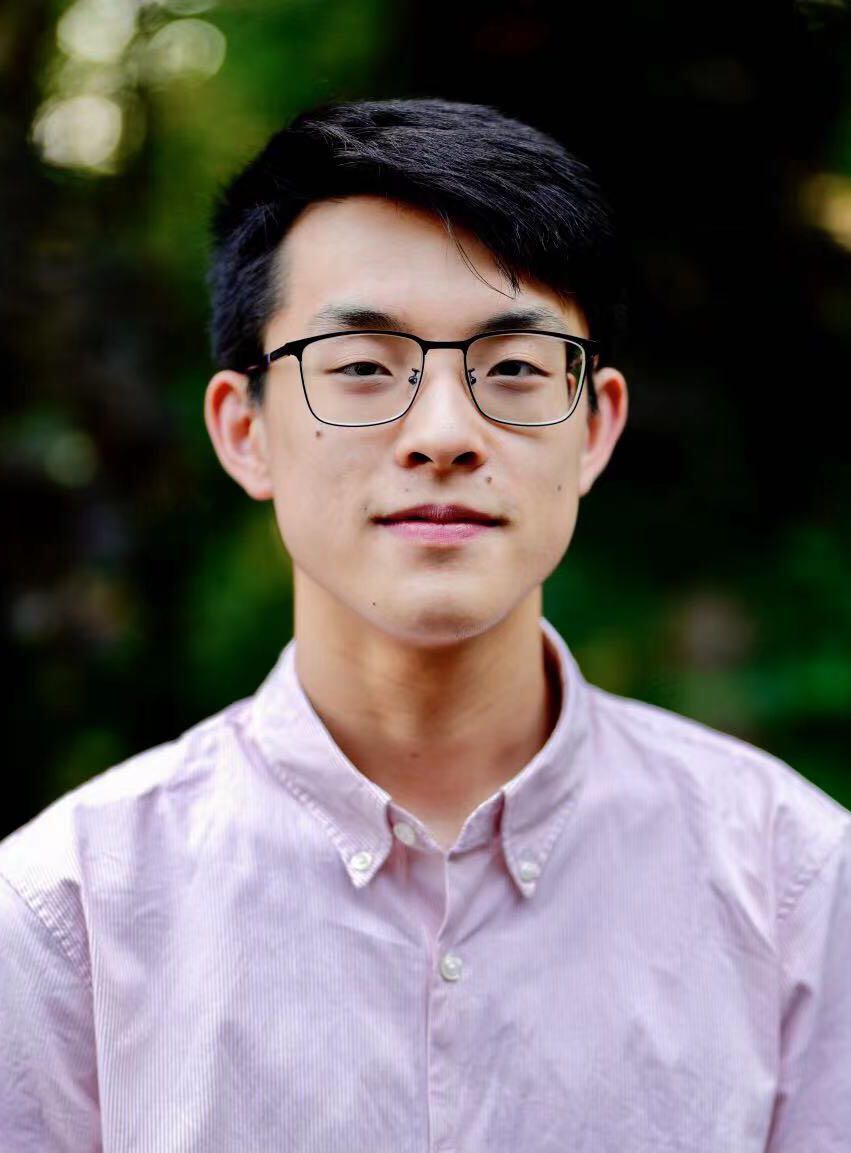Congratulations to the 2023 Tobin Scholars!

The Department of Economics is proud to announce the 2023 recipients of the Tobin Scholar Prize for their outstanding performance in the Department of Economics core courses. The four seniors are Emma Bucaj, Ronit Gupta, Evan Hu, and Iris Li.
The prize honors James Tobin, a prominent member of the Department of Economics at Yale from 1950 to 2002, and the recipient of the Nobel Prize in Economics in 1981. Alumni Stephen Freidheim and David Swensen (Yale’s former Chief Investment Officer) created the Tobin Scholars Prize in 2012 to honor Professor Tobin and his scholarship.
In recognition of their accomplishments, the majors receive a cash prize and are presented the Tobin Scholars Mory’s Cup. For more history on the prize, and an interview with Stephen Freidheim and David Swensen, see this article.
The Department is excited to present this year’s award to Emma, Ronit, Evan, and Iris, and highlight their achievements below.
 Emma Bucaj
Emma Bucaj
What drew you to major in economics?
Economics enables me to understand human decision making and how to make the world better, while also allowing me to employ my quantitative and qualitative skills. With wide-ranging applications, I’ve enjoyed taking econ electives that cover a variety of topics like natural resources, history, and artificial intelligence.
What’s been your favorite class so far?
I’ve loved all my Econ classes! My favorite so far is the Economics of Artificial Intelligence, which covers an exciting topic for me, and involves industry analysis of a specific sector that will be impacted by AI in the near future. I’ve also liked the Econometrics sequence because it brings together economics, statistics, and computing.
Are you doing a senior essay, and if yes, what’s the topic?
My essay involves creating a DEI index that captures information beyond demographic diversity statistics to predict its influence on various measures of financial firm performance like profitability, stock price, and innovation.
What activities have you been involved with at Yale?
I am involved with Women in Economics, Smart Women Securities, and The Women’s Network. I was previously involved with the Yale Undergraduate Prison Project and was a tutor for RISE. I have also been a peer tutor for the Econ Department for three years.
 Ronit Gupta
Ronit Gupta
What drew you to major in economics?
I was drawn to the economics major because I enjoy thinking about broad issues in the economy through the lens of data analysis and analytical problem-solving. The core courses in the major provide a great balance between economic theory and empirical methods.
What’s been your favorite class so far?
My favorite class so far has been Monetary Policy with Professor English. I really enjoyed learning about how the Federal Reserve makes policy decisions and how movements in interest rates affect the macroeconomy. Prof. English is very knowledgeable and passionate about monetary policy, and explains difficult concepts in a very understandable way.
Are you doing a senior essay, and if yes, what’s the topic?
I will be doing a senior project in Computer Science & Economics in the spring. I have not decided on my topic yet, but I am considering doing research in macroeconomics, finance, or sports economics.
What activities have you been involved with at Yale?
I have been involved with the Yale Student Investment Group (YSIG) since my freshman year, where I've learned the fundamentals of equity research and modeling through hands-on experience. This year, I am one of the portfolio managers for the club responsible for asset allocation and investment decisions.
 Evan Hu
Evan Hu
What drew you to major in economics?
I am fascinated by how economics uses quantitative tools to tackle important real-world issues. Many policy-related issues lack a rigorous framework to think about the effects of such policies. I believe the economics literature has developed a powerful toolkit to attempt to address such issues.
What’s been your favorite class so far?
My favorite economics class has been Econ 433: Economics of Space (not outer space!). Even though economic outcomes are becoming more unequal across individuals, one aspect that has interested me is how economic inequality is also increasing across geographical regions. For instance, the urban wage premium is one phenomenon in which wages in dense cities are becoming disproportionately higher than wages in rural areas, even controlling for individual characteristics. I'm interested in exploring how place-based policies can alleviate these spatial disparities.
Are you doing a senior essay, and if yes, what’s the topic?
I am writing my senior essay on spatial income inequality and how social capital, or friendship networks, can actually contribute to income inequality across regions. One measure of social capital is friending bias, which is the tendency of low-income individuals to interact less often with high-skill individuals, even controlling for the share of high-skill individuals in a location. One of my main findings is that among locations with similar shares of high and low skill individuals, the cities with higher friending bias have higher skill premium—defined as the difference in wages between high and low skill individuals.
 Iris Li
Iris Li
What drew you to major in economics?
I knew that Economics & Math was the right major for me because I wanted a course of study that could broadly apply a rigorous quantitative framework to answer concrete questions about the world.
What’s been your favorite class so far?
I've really enjoyed all my economics classes so far, but my favorite is ECON 351 (Mathematical Economics: Game Theory), which I took last spring with Johannes Hörner. Not only did the lectures feel like engaging stories, but I also began to appreciate how many problems in the world could be modeled and addressed under a game theory framework.
Are you doing a senior essay, and if yes, what’s the topic?
My senior essay examines how investor valuation frameworks differ, if at all, between US and UK investors. This stems from my curiosity about the nuances of irrationalities across different investor populations, and the applications such findings may have on behavioral economics.
What activities have you been involved with at Yale?
Last year, I served as Student Body Vice President for the Yale College Council, Yale's undergraduate student government. I currently work as a teaching assistant for ECON 455 and 472, a Pierson College aide, and a writing partner.